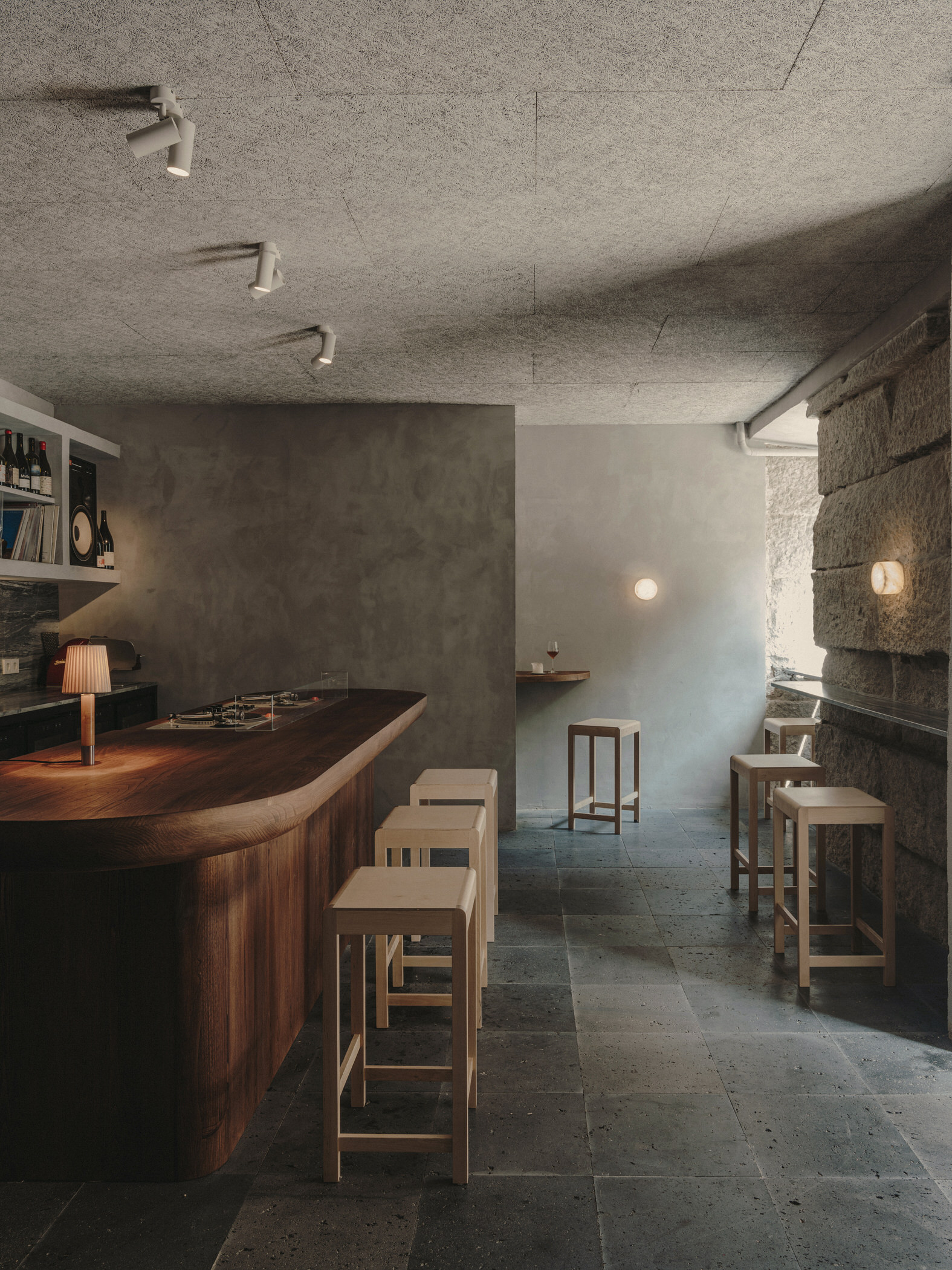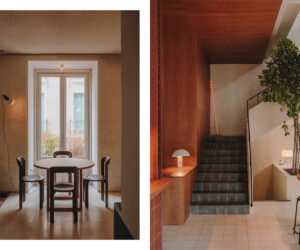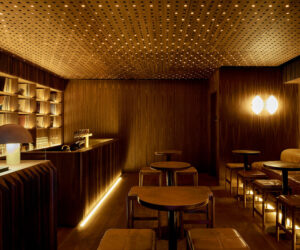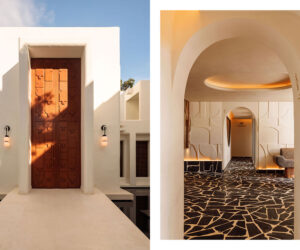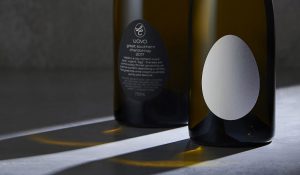




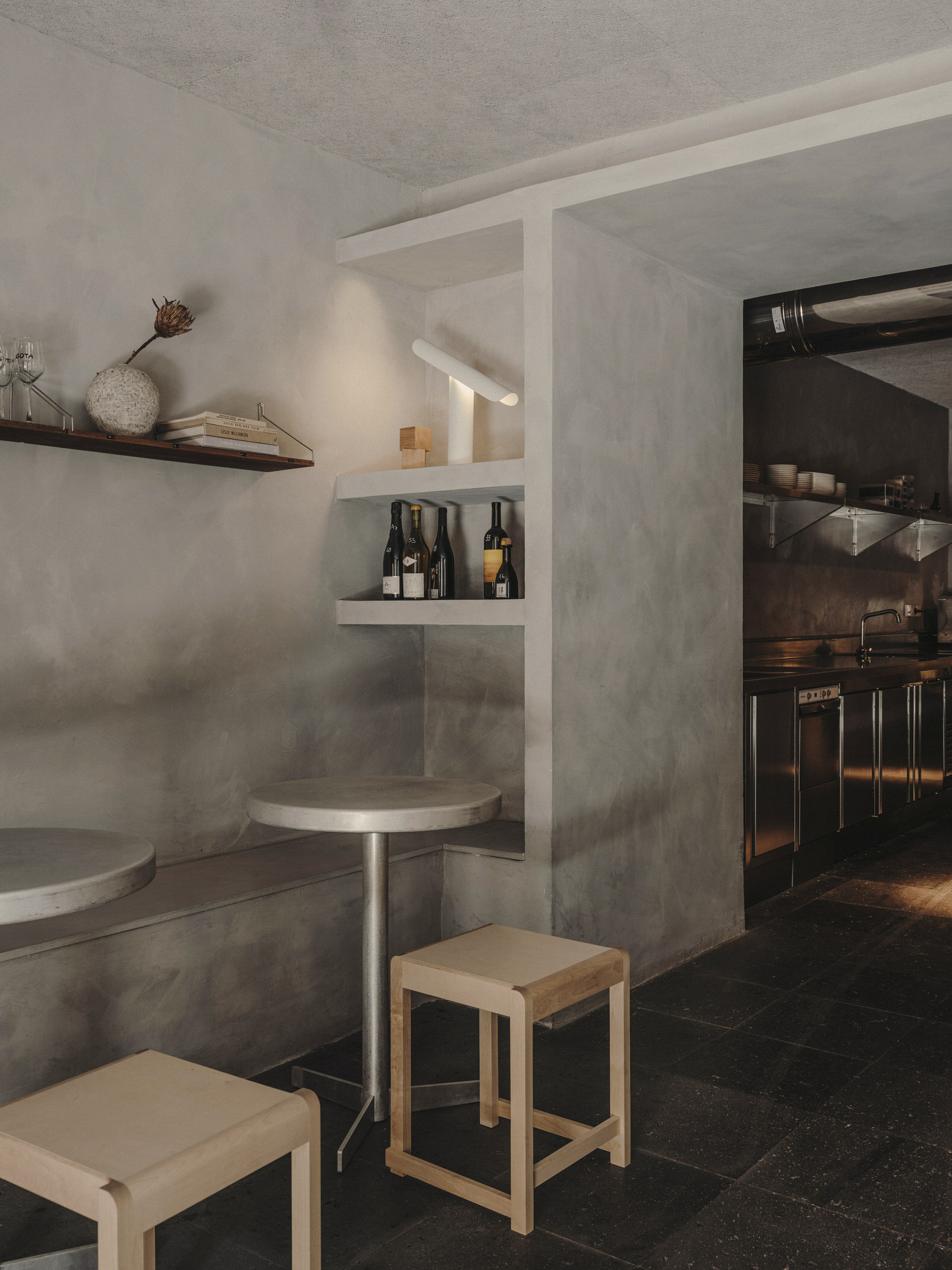


Madrid’s Justicia barrio is a glittering tapestry of swish boutiques, neoclassical buildings, nightclubs, bistros, and tapas bars, of which most are remarkably modern in design. Plantea Estudio’s latest project is the exception. Designed like a dark and monolithic cave, the wine and small plates bar is situated on the ground floor of a neoclassical building—but it might as well have erupted out of a volcano.
The restaurant doesn’t give too much away, at least not at first. The main door opens into a 70-square-metre bar area, where a made-to-measure chestnut counter—fitted with an in-built turntable—stands sentinel, cutting a sharp contrast to the charcoal floor.





Along the walls, gleaming round aluminum tables and square birchwood stools by Danish design brand Frama, take pride of place, offering patrons a casual spot to sink into an appetiser or swing down a tipple. Alabaster sconces by Siete Formas and small lamps of unknown origin seemingly levitate along the walls and shelves, serving as otherworldly additions to the volcanic setting.
Behind the counter, a selection of wine bottles, vintage vinyl records and other music-related novelties signal a promising mix of music and moonshine.


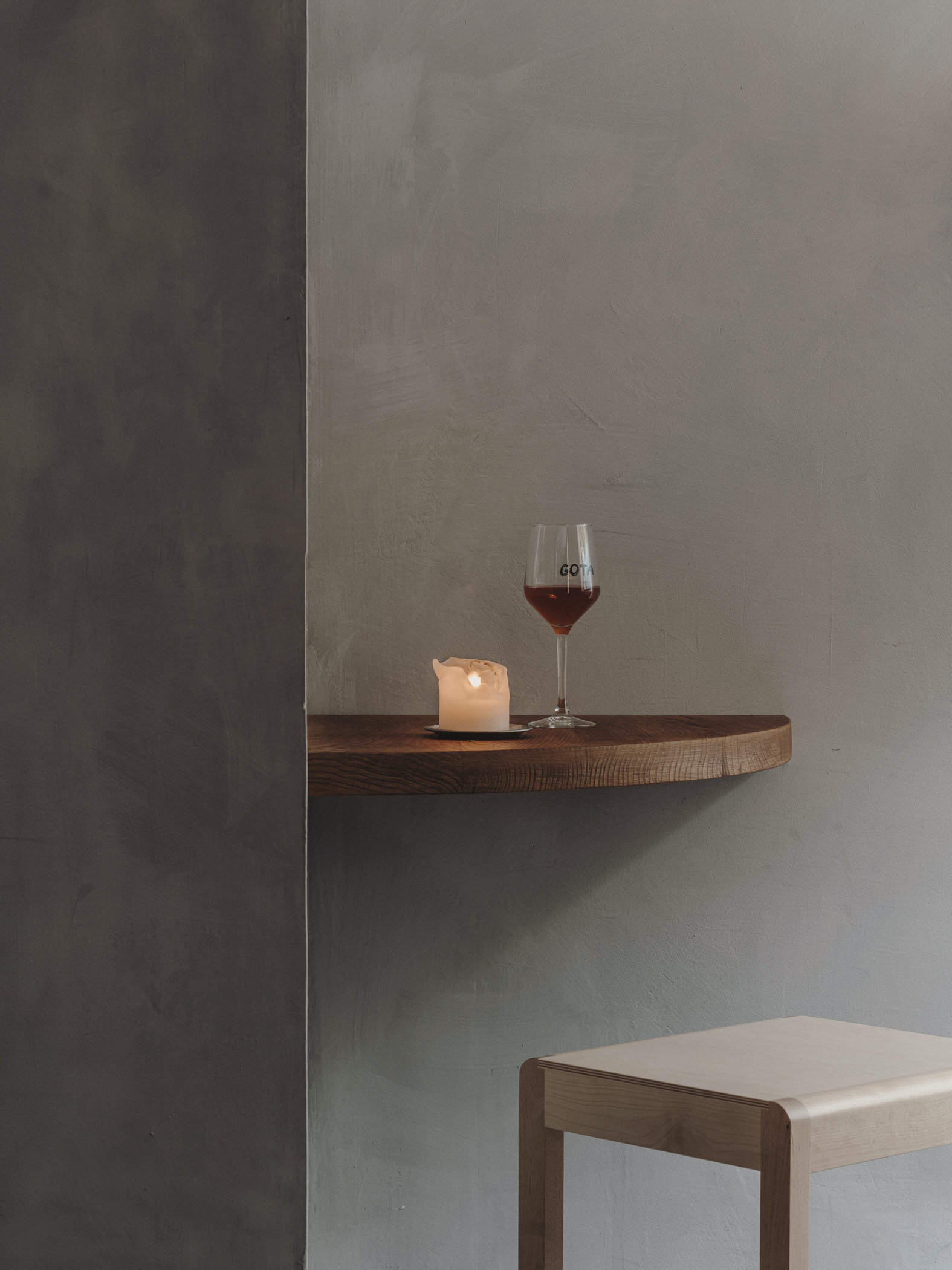

A short corridor connects the bar area to the dining room, where heavy granite ashlar walls—some exposed, others disguised behind plaster and grey lime paint—conjure a cave-like aura. One wall morphs into a bench, while another reveals a jagged red brick effect that disappears into the vaulted ceiling. A 10-centimetre-thick granite table by Plantea Estudio takes centre stage, illuminated by an alabaster lamp by Santa & Cole. Aluminium Tasca chairs by Frama and smaller birch tables of the studio’s own design complete the setting.
The floor has a special significance. It channels the deepest charcoal, courtesy of black volcanic stone tiles which, per the studio’s founders Lorenzo and Luis Gil, allude to a “newly discovered terrain.” Indeed, for patrons who step inside, the allusion holds true, time and time again.

